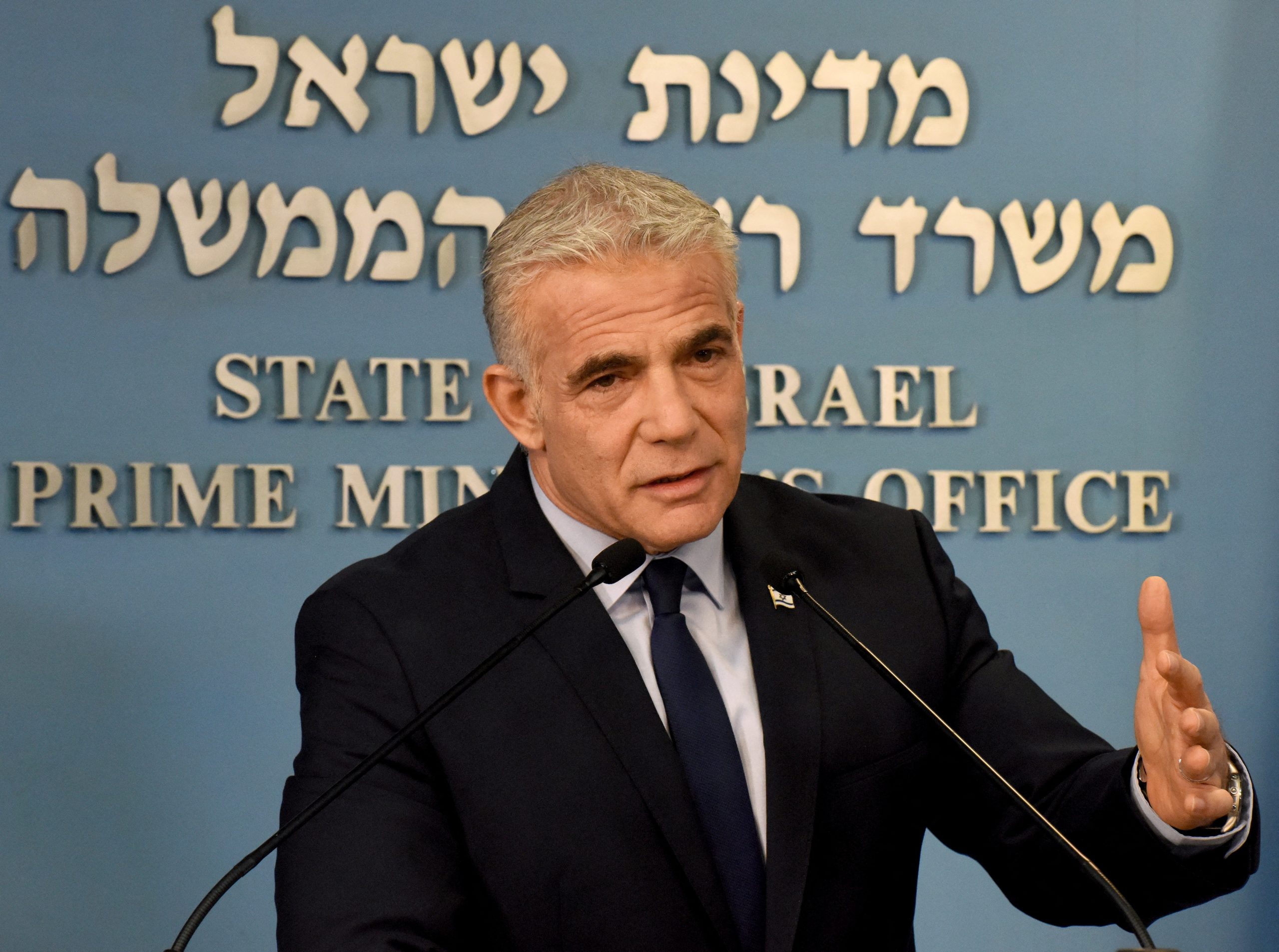[elfsight_social_share_buttons id=”1″]
A new nuclear deal between world powers and Iran would allow other nations to avoid sanctions and give Teheran $100 billion a year to destabilize the Middle East, Israeli Prime Minister Yair Lapid said on Wednesday.
The statements were made after the White House responded to a draft accord proposed by the European Union earlier this week that many believe will fast-track the restoration of a revised 2015 nuclear deal with Iran. The 2015 deal called for Iran to curb its disputed uranium enrichment program in exchange for sanctions relief from America and the West.
The deal was abandoned in 2018 by then-U.S. President Donald Trump, but current President Joe Biden has sought to revive it. Iran has demanded that crippling U.S. financial and trade sanctions reimposed on it by Trump be scrapped as part of any new deal.
“On the table right now is a bad deal. It would give Iran a hundred billion dollars a year … that will be used to undermine stability in the Middle East and spread terror around the globe,” Lapid said.
“The sweeping removal of sanctions on sectors like banking – against financial institutions designated today as supporting terrorism – means the Iranians will have no problem whatsoever laundering money … Iran will assist other nations facing sanctions to evade them.”
Iran denies fomenting terrorism.
Lapid did not provide details of what his $100 billion figure was based on or name nations that could dodge sanctions.
Opposition leader and former Israeli Prime Minister Benjamin Netanyahu railed against the deal, saying it was worse than the original deal that he battled against in 2015, according to The Times of Israel.
“The terrible deal with Iran … casts a heavy shadow on our security and our future,” Netanyahu told reporters in Tel Aviv.
“The deal enables Iran to get everything and give nothing … The current deal is worse than the previous deal.”
Some critics of the draft deal point to the possibility of Russia — a party to the 2015 pact with Iran but now under severe Western sanctions over its invasion of Ukraine — stepping up transactions with Iran, including oil and weapons.
On Wednesday, Iran launched exercises to test its combat and reconnaissance drones amid U.S. concerns over the possible supply of Iranian-made unmanned aircraft to Russia for use in its invasion of Ukraine.
Israel is not party to the ongoing nuclear negotiations, but its worries about its arch-enemy. Israel’s veiled threats to take pre-emptive military action against Iran if it deems diplomacy hits a dead end have kept Western capitals attentive.
Israeli Defence Minister Benny Gantz is expected to travel to Washington on Thursday, his office said.
Copyright 2022 Thomson/Reuters (Additions and edits by Jacob Fuller, FISM News).

